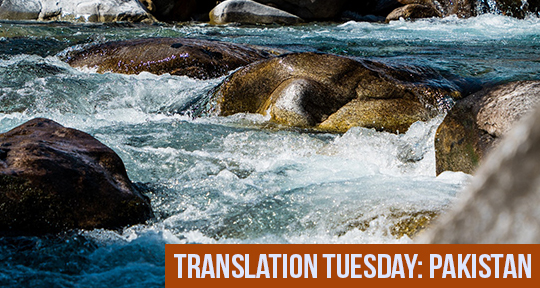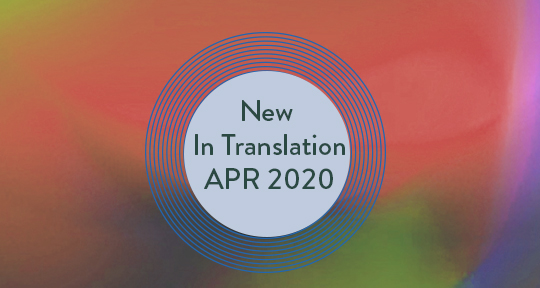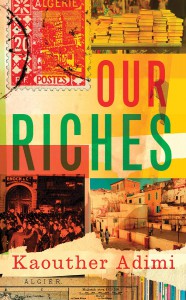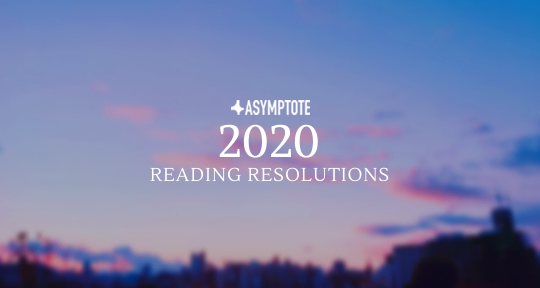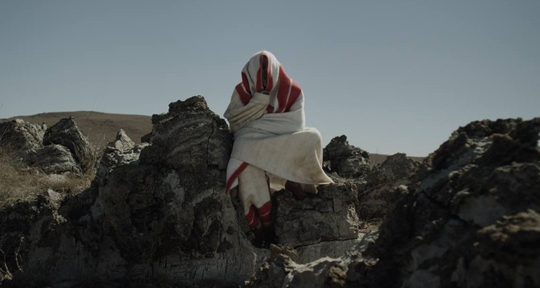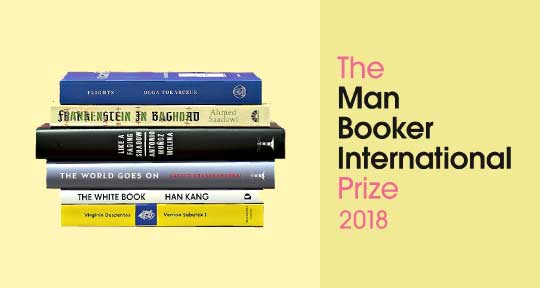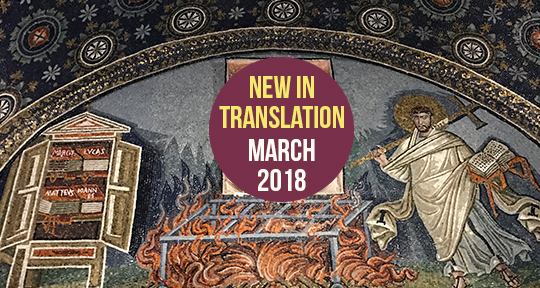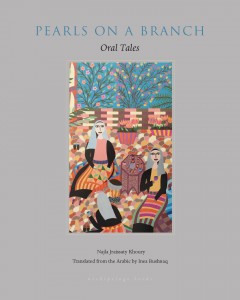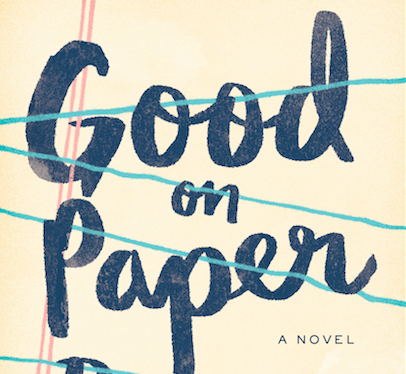This Translation Tuesday, we are thrilled to bring to you an excerpt from the novel Paani Mar Raha Hai (Dying Water) written by the award-winning Pakistani writer Amna Mufti. With the 1947 Partition of India looming in the backdrop, Irfan and Shahida move to Pakistan and confront not just a divided world but also a divisive secret. Adapted and condensed into a self-contained short story by translator Haider Shahbaz, this at once mythic and historical tale of ecological crisis from the Urdu is a riveting take on the fault lines between geological and geopolitical boundaries.
“The novel, Dying Water, focuses on the environmental consequences of the Indus Water Treaty between India and Pakistan. In this way, it connects our current climate catastrophe to longer histories of colonialism and partition. It also changes the language and framework we use to talk about the climate crisis—instead of scientific facts, it forms a narrative out of religious beliefs and mythical tales to create a unique prose style that emphasizes our ethical connections to nature.”
—Haider Shahbaz
Irfan remembered the first time someone brought up the idea of his marriage to Shahida.
Irfan was well-educated—an alumnus of Aligarh—and extremely good looking, but even he was taken aback when he first heard about the proposal. Shahida was rich and beautiful beyond imagination. Irfan, on the other hand, didn’t have any family. It’s not like he was born from a stone. When times were good, he used to live in Amroha with all his relatives. He got his degree in engineering from Aligarh and went to Delhi to look for a government job. Around the same time, the British decided to leave and partition India. Irfan heard that government officers could choose if they wanted to stay in India or leave for Pakistan.
What does a blind man want? Two eyes! Irfan sent a telegram to his family and told them they were moving to Pakistan. The family was scared. They didn’t want to leave. But what could they do? Eventually they mustered up the courage to get a train from India to Pakistan. Each and every family member was killed on that train. Nobody survived.
Irfan got his Pakistan, and he loved it with all his heart. Pakistan gave him a high-ranking position in the government bureaucracy. And Pakistan gave him Shahida. He was completely blown away by her beauty, grace, and refinement. Even touching her was overwhelming for him. READ MORE…

